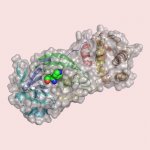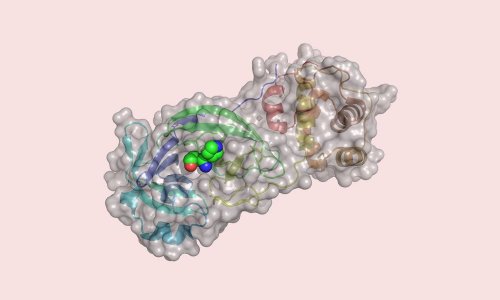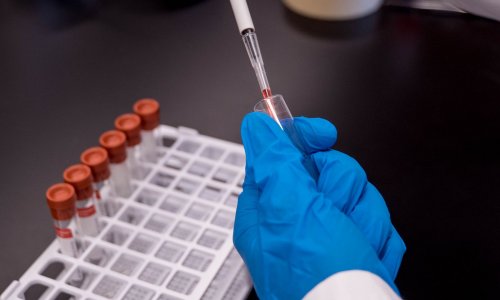Image source: CDC/Alissa Eckert, MS (editing: HiE)
News • COVID-19 medication safety
New traffic light system to prevent coronavirus drug interaction
The University of Liverpool launched a new website featuring a traffic light system to aid the safe prescribing of experimental drugs being trialled against coronavirus (COVID-19).
The site, created by the University’s Liverpool Drug Interactions Group, provides vital information on whether or not combinations of an experimental drug and co-medications are safe to prescribe. This is of particular importance among elderly patients with underlying health problems, who are most at risk from COVID-19 and are likely to already use multiple drug prescriptions. Liverpool Drug Interactions Group Leader, Professor Saye Khoo said: “We regularly receive requests for drug interactions advice for COVID-19 from around the world; especially given older people with medical conditions are bearing the brunt of severe illness.”
The site www.covid19-druginteractions.org already welcomed more than 2,000 visits from 92 countries within days of launch.
Recommended article

News • Computer-aided search for substances
Virtual screening for anti-coronavirus drugs
The University of Basel is part of the global search for a drug to fight the rampant coronavirus SARS-CoV-2. Researchers in the Computational Pharmacy group have so far virtually tested almost 700 million substances, targeting a specific site on the virus – with the aim of inhibiting its multiplication.
Currently, drugs from different disease areas, such as Ebola, HIV and Influenza, are being used experimentally against COVID-19, leaving many prescribers unsure how they will interact with patients’ existing medications. Introducing a new drug to the mix could raise concentrations to dangerous levels, or, alternatively, lower them to the point where medications no longer work.
To address this, Liverpool Drug Interactions Group members, alongside experts at University Hospital Basel and Radboud University, Nijmegen, focused on drugs commonly prescribed to elderly patients, such as blood thinners and diabetes medications.
The team say they will continue to respond as the situation develops, with plans already in place to expand the drug list to include agents frequently used in intensive care units. LDIG also hope to include more experimental agents against COVID-19, as data concerning these drugs becomes available and as further therapies come into use.
Source: University of Liverpool
12.03.2020







